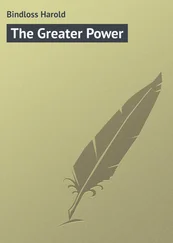Charles Dilke - Greater Britain
Здесь есть возможность читать онлайн «Charles Dilke - Greater Britain» — ознакомительный отрывок электронной книги совершенно бесплатно, а после прочтения отрывка купить полную версию. В некоторых случаях можно слушать аудио, скачать через торрент в формате fb2 и присутствует краткое содержание. Жанр: foreign_antique, foreign_prose, Путешествия и география, на английском языке. Описание произведения, (предисловие) а так же отзывы посетителей доступны на портале библиотеки ЛибКат.
- Название:Greater Britain
- Автор:
- Жанр:
- Год:неизвестен
- ISBN:нет данных
- Рейтинг книги:5 / 5. Голосов: 1
-
Избранное:Добавить в избранное
- Отзывы:
-
Ваша оценка:
- 100
- 1
- 2
- 3
- 4
- 5
Greater Britain: краткое содержание, описание и аннотация
Предлагаем к чтению аннотацию, описание, краткое содержание или предисловие (зависит от того, что написал сам автор книги «Greater Britain»). Если вы не нашли необходимую информацию о книге — напишите в комментариях, мы постараемся отыскать её.
Greater Britain — читать онлайн ознакомительный отрывок
Ниже представлен текст книги, разбитый по страницам. Система сохранения места последней прочитанной страницы, позволяет с удобством читать онлайн бесплатно книгу «Greater Britain», без необходимости каждый раз заново искать на чём Вы остановились. Поставьте закладку, и сможете в любой момент перейти на страницу, на которой закончили чтение.
Интервал:
Закладка:
It is clear that the Southern negroes must be given a decisive voice in the appointment of the legislatures by which they are to be ruled, or that the North must be prepared to back up by force of opinion, or if need be, by force of arms, the Federal Executive, when it insists on the Civil Rights Bill being set in action at the South. Government through the negroes is the only way to avoid government through an army, which would be dangerous to the freedom of the North. It is safer for America to trust her slaves than to trust her rebels – safer to enfranchise than to pardon.
A reading and writing basis for the suffrage in the Southern States is an absurdity. Coupled with pardons to the rebels, it would allow the “boys in gray” – the soldiers of the Confederacy – to control nine States of the Union; it would render the education of the freedmen hopeless. For the moment, it would entirely disfranchise the negroes in six States, whereas it is exactly for the moment that negro suffrage is in these States necessary; while, if the rebels were admitted to vote, and the negroes excluded from the poll, the Southern representatives, united with the Copperhead wing of the Democratic party, might prove to be strong enough to repudiate the Federal debt. This is one of a dozen dangers.
An education basis for the suffrage, though pretended to be impartial, would be manifestly aimed against the negroes, and would perpetuate the antipathy of color to which the war is supposed to have put an end. To education such a provision would be a death-blow. If the negroes were to vote as soon as they could read, it is certain that the planters would take good care that they never should read at all.
That men should be able to examine into the details of politics is not entirely necessary to the working of representative government. It is sufficient that they should be competent to select men to do it for them. In the highest form of representative government, where all the electors are both intelligent, educated, and alive to the politics of the time, then the member returned must tend more and more to be a delegate. That has always been the case with the Northern and Western members in America, but never with those returned by the Southern States; and so it will continue, whether the Southern elections be decided by negroes or by “mean whites.”
In Warren County, Mississippi, near Vicksburg, is a plantation which belongs to Joseph Davis, the brother of the rebel president. This he has leased to Mr. Montgomery – once his slave – in order that an association of blacks may be formed to cultivate the plantation on co-operative principles. It is to be managed by a council elected by the community at large, and a voluntary poor-rate and embankment-rate are to be levied on the people by themselves.
It is only a year since the termination of the war, and the negroes are already in possession of schools, village corporations, of the Metayer system, of co-operative farms; all this tells of rapid advance, and the conduct and circulation of the New Orleans Tribune , edited and published by negroes, and selling 10,000 copies daily, and another 10,000 of the weekly issue, speaks well for the progress of the blacks. If the Montgomery experiment succeeds, their future is secure.
CHAPTER III.
THE SOUTH
THE political forecasts and opinions which were given me upon plantations were, in a great measure, those indicated in my talk with the Norfolk “loafers.” On the history of the commencement of the rebellion there was singular unanimity. “Virginia never meant to quit the Union; we were cheated by those rascals of the South. When we did go out, we were left to do all the fighting. Why, sir, I‘ve seen a Mississippian division run away from a single Yankee regiment.”
As I heard much the same story from the North Carolinians that I met, it would seem as though there was little union among the seceding States. The legend upon the first of all the secession flags that were hoisted was typical of this devotion to the fortunes of the State: “Death to abolitionists; South Carolina goes it alone;” and during the whole war it was not the rebel colors, but the palmetto emblem, or other State devices, that the ladies wore.
About the war itself but little is said, though here and there I met a man who would tell camp stories in the Northern style. One planter, who had been “out” himself, went so far as to say to me: “Our officers were good, but considering that our rank and file were just ‘white trash,’ and that they had to fight regiments of New England Yankee volunteers, with all their best blood in the ranks, and Western sharpshooters together, it‘s only wonderful how we weren‘t whipped sooner.”
As for the future, the planter‘s policy is a simple one: “Reckon we‘re whipped, so we go in now for the old flag; only those Yankee rogues must give us the control of our own people.” The one result of the war has been, as they believe, the abolition of slavery; otherwise the situation is unchanged. The war is over, the doctrine of secession is allowed to fall into the background, and the ex-rebels claim to step once more into their former place, if, indeed, they admit that they ever left it.
Every day that you are in the South you come more and more to see that the “mean whites” are the controlling power. The landowners are not only few in number, but their apathy during the present crisis is surprising. The men who demand their readmission to the government of eleven States are unkempt, fierce-eyed fellows, not one whit better than the brancos of Brazil; the very men, strangely enough, who themselves, in their “Leavenworth constitution,” first began disfranchisement, declaring that the qualification for electors in the new State of Kansas should be the taking oath to uphold the infamous Fugitive Slave Law.
These “mean whites” were the men who brought about secession. The planters are guiltless of everything but criminal indifference to the deeds that were committed in their name. Secession was the act of a pack of noisy demagogues; but a false idea of honor brought round a majority of the Southern people, and the infection of enthusiasm carried over the remainder.
When the war sprang up, the old Southern contempt for the Yankees broke out into a fierce burst of joy, that the day had come for paying off old scores. “We hate them, sir,” said an old planter to me. “I wish to God that the Mayflower had sunk with all hands in Plymouth Bay.”
Along with this violence of language, there is a singular kind of cringing to the conquerors. Time after time I heard the complaint, “The Yanks treat us shamefully, I reckon. We come back to the Union, and give in on every point; we renounce slavery; we consent to forget the past; and yet they won‘t restore us to our rights.” Whenever I came to ask what they meant by “rights,” I found the same haziness that everywhere surrounds that word. The Southerners seem to think that men may rebel and fight to the death against their country, and then, being beaten, lay down their arms and walk quietly to the polls along with law-abiding citizens, secure in the protection of the Constitution which for years they have fought to subvert.
At Richmond I had a conversation which may serve as a specimen of what one hears each moment from the planters. An old gentleman with whom I was talking politics opened at me suddenly: “The Radicals are going to give the ballot to our niggers to strengthen their party, but they know better than to give it to their Northern niggers.”
D . – “But surely there‘s a difference in the cases.”
The Planter . – “You‘re right – there is; but not your way. The difference is, that the Northern niggers can read and write, and even lie with consistency, and ours can‘t.”
Читать дальшеИнтервал:
Закладка:
Похожие книги на «Greater Britain»
Представляем Вашему вниманию похожие книги на «Greater Britain» списком для выбора. Мы отобрали схожую по названию и смыслу литературу в надежде предоставить читателям больше вариантов отыскать новые, интересные, ещё непрочитанные произведения.
Обсуждение, отзывы о книге «Greater Britain» и просто собственные мнения читателей. Оставьте ваши комментарии, напишите, что Вы думаете о произведении, его смысле или главных героях. Укажите что конкретно понравилось, а что нет, и почему Вы так считаете.












